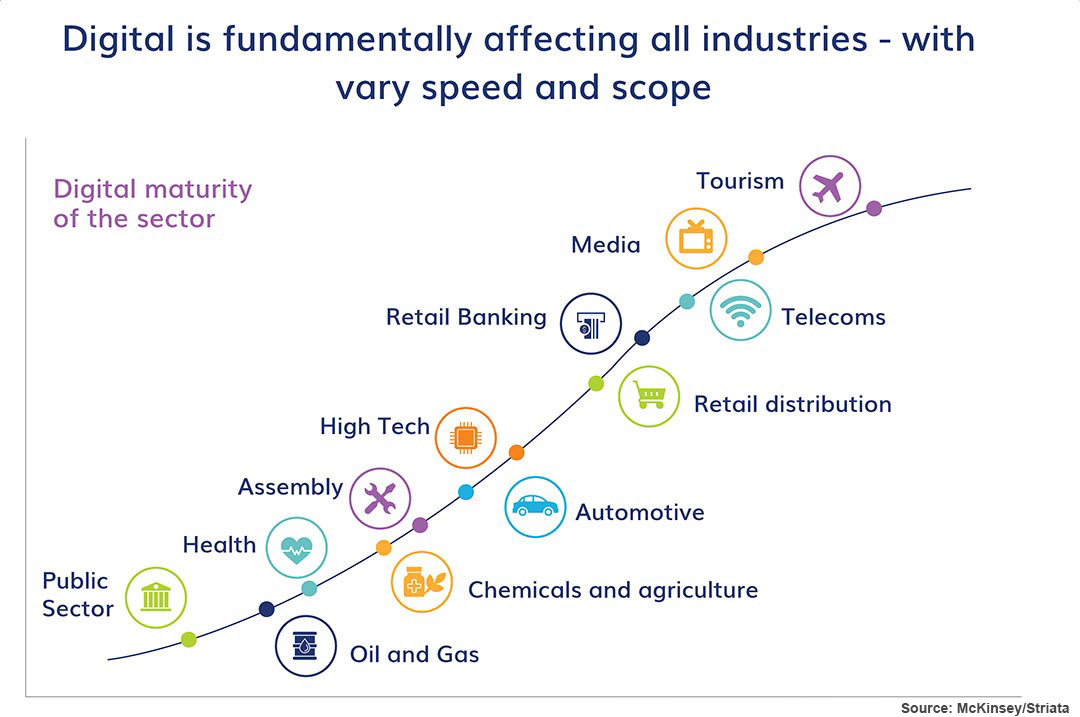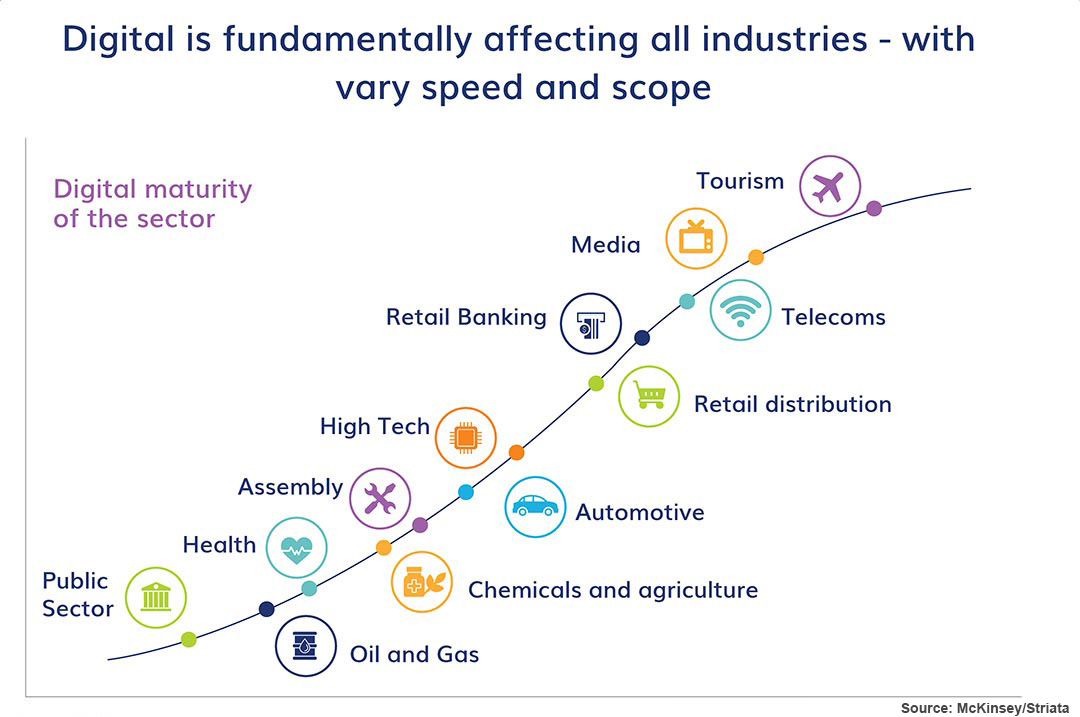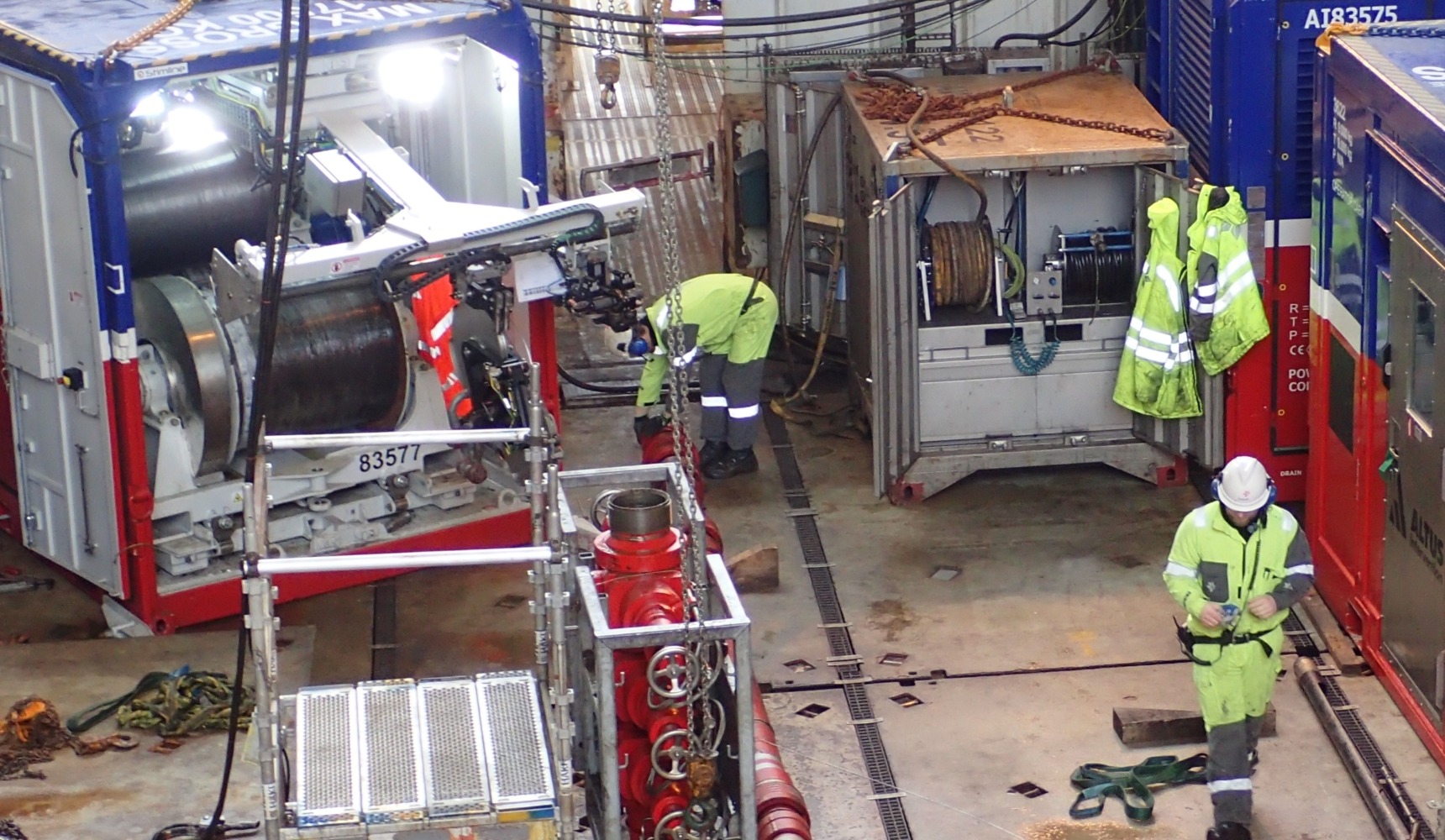Top causes of HSE incidents that can be prevented with digitalization
Have you just perfected procedures and best practices, only to have them outdated by a new tool or technology? Have you ever been caught off guard by...

McKinsey Digital, presented in 2016 a study illustrating the low level of digitalization in the oil industry. When compared to other major sectors in world economy, the difference is striking. In 2024, almost a decade later, the story is much of the same, but there is progress and solutions available.
The vision of a futuristic oilfield clashes with the current inconsistent operational performance, organizational unpreparedness, and low level of digital maturity. The oil and gas sector ranks among the least digitized industries, according to McKinsey's findings. This indicates a significant scope for digital transformation and presents excellent opportunities for the implementation of new technologies.
In this text we will look at some of the challenges and pathways, identified by the industry, when adopting and maturing digital solutions.
In a 2024 interview with Molly Smith, VP of Drilling and Completions at Murphy Oil, she emphasized,
“I think there are three things the industry needs to focus on with data;
At Stimline Digital, we believe that Murphy Oil has the right vision to enable their digital journey. At the forefront of our solutions, IDEX collaboration platform is the tool that is currently used by Shell to standardize their operations. It provides their experienced engineering workforce the necessary time to dive deep into their data and analyze, optimize and perform.
Read more: Thank Goodness We Decided That Openness Is The Way Forward
With all the current market uncertainties, companies have a golden opportunity to boost their automation levels, as survival increasingly hinges on operational efficiency. Each strategic move towards enhancement promises greater savings, improved diagnostics, and improved operations overall.

Referring to McKinsey's chart, climbing the ladder in digitalization yields multiple benefits. However, it's crucial to consider the internal human factors during this transformative journey.
Read more: New methods of post job analysis (traditional vs new)
Unfortunately, the adoption and advancement of the digital technologies at the necessary scale is a rare sight in many oil and gas companies. McKinsey's research reveals that, despite numerous digitalization projects, a whopping 70 percent haven't progressed beyond the pilot phase.
Surprisingly, the issue isn't usually the technology itself. Many pilot projects succeed, meeting or surpassing their technical goals. The real issue lies in three significant cultural and organizational barriers.
In response to these challenges, the IDEX Collaboration platform emerges as a solution tailored for oil companies. It's open, flexible, and ready to seamlessly integrate into existing workflows, communicating effectively with in-house or third-party software. Its role is pivotal in helping organizations plan, execute, and analyze the journey towards One Digital Well with consistency and transparency. A vision that originated from industry pains, inefficiencies and missed opportunities.
The journey is still long for mature digitalization in the oil industry, but when you can leverage tools like IDEX you are poised to observe a more purposeful workforce and new levels of performance that has never been achieved before.

Have you just perfected procedures and best practices, only to have them outdated by a new tool or technology? Have you ever been caught off guard by...

In the fast-paced, landscape of the oil and gas industry, digital collaboration platforms have emerged as a game-changer, redefining the essence of...

Digitalization is an ongoing trend, affecting all industries including the energy industry. The digital revolution is all about unlocking the power...